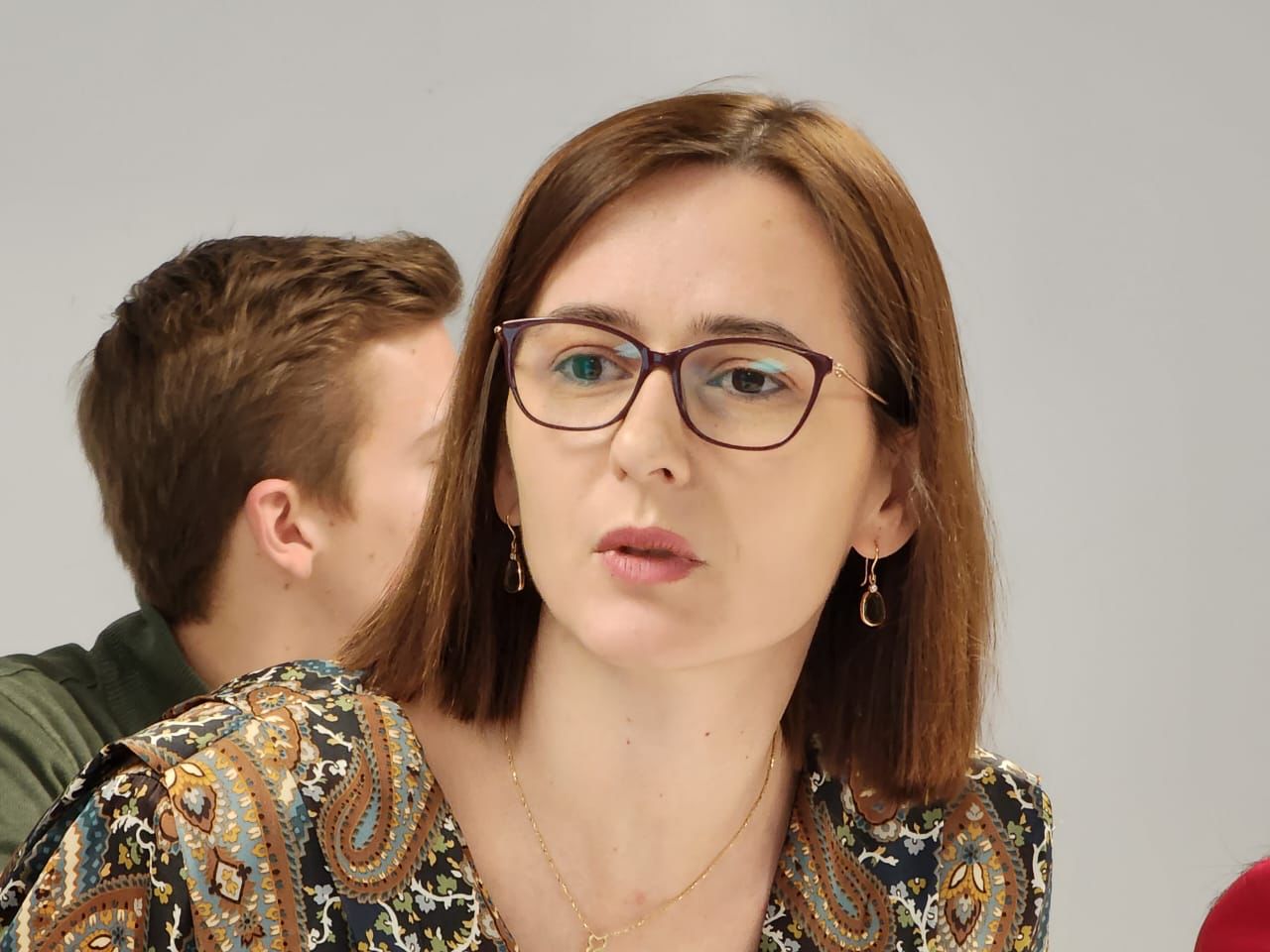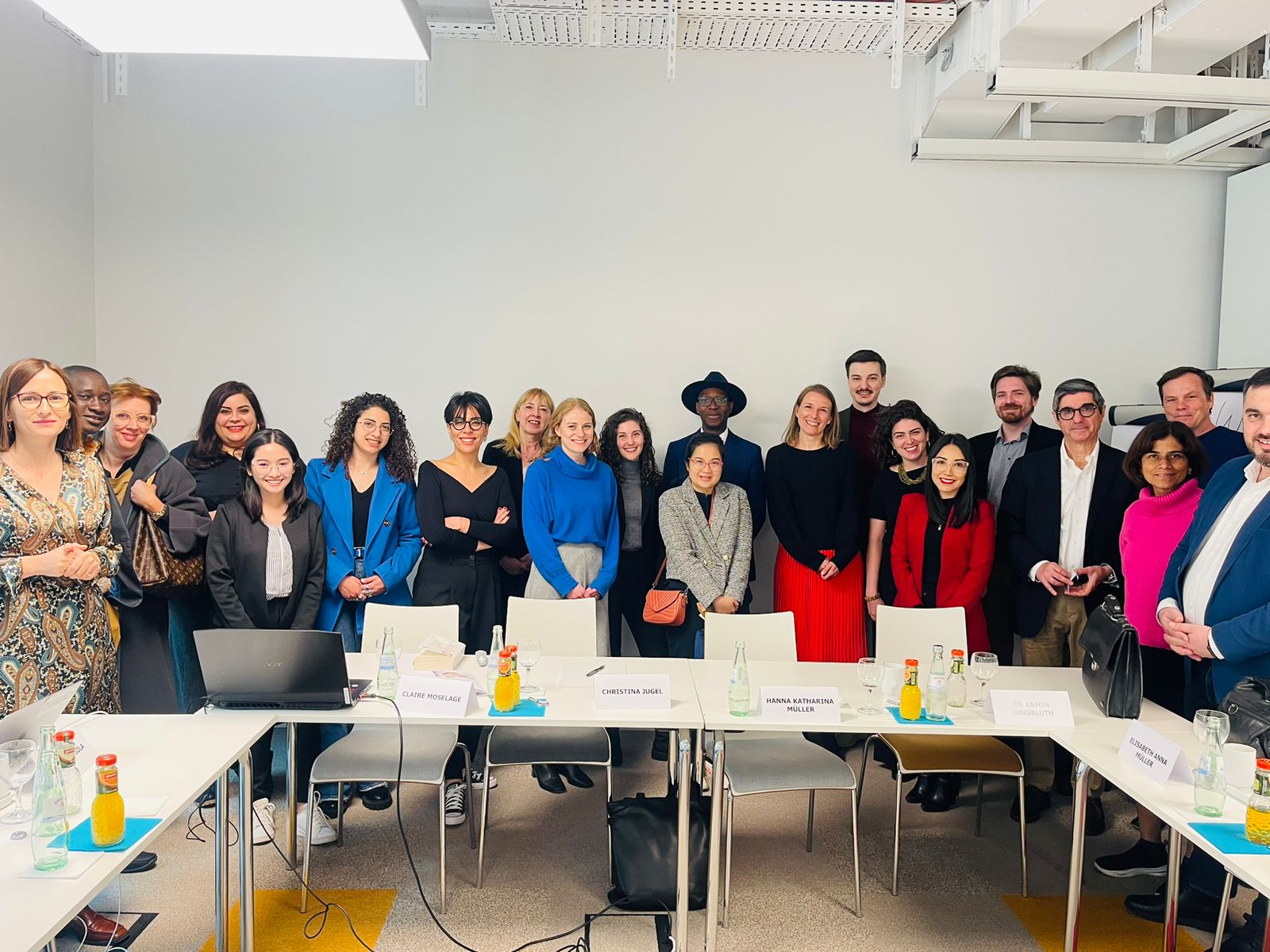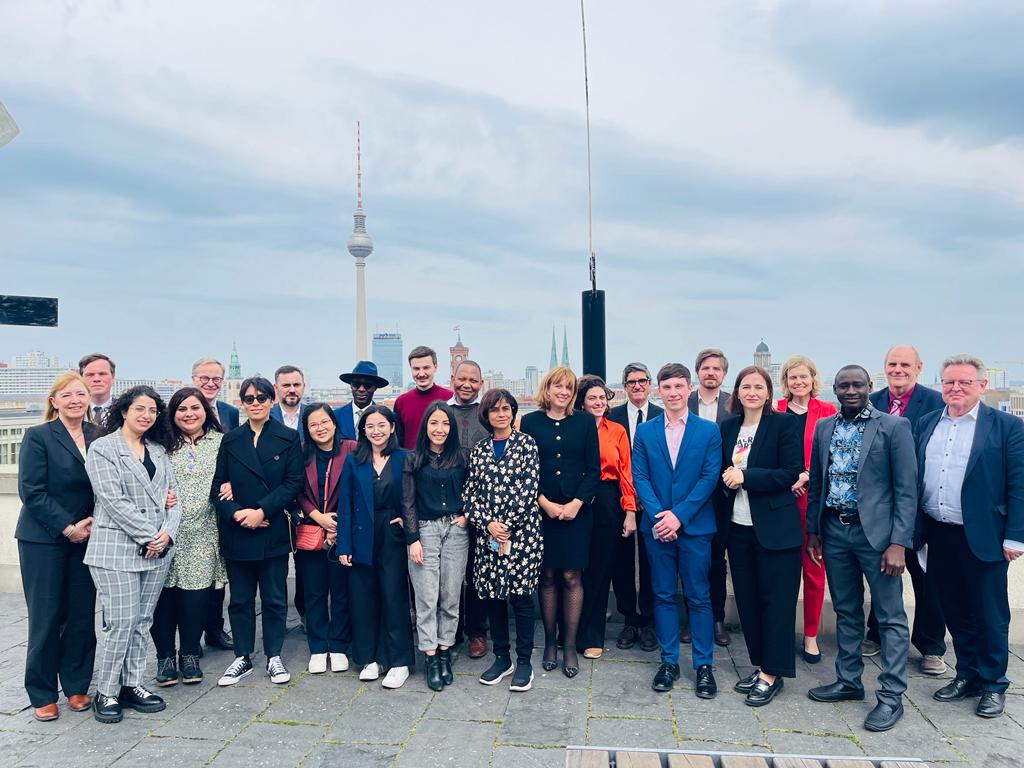
Tackling Disinformation: Insights from a Five-Day Programme in Germany on Media’s Role and Responsibility
Dr. Blerjana Bino, Safe Journalists Researcher in Albania, recently participated in a five-day visitors’ program in Berlin and Potsdam, Germany, alongside other media and civil society professionals at the invitation of the Federal Foreign Office. The Visitors Programme of the Federal Republic of Germany aimed to foster collaboration, and knowledge-sharing, and strengthen the resilience of democratic societies against disinformation.
Day One: Navigating the German Media Ecosystem
The program commenced with an overview of the German media ecosystem and its challenges in the age of disinformation, presented by Prof. Dr. Martin Emmer from the Free University of Berlin. Participants later engaged in an insightful discussion at Deutsche Welle’s capital studios with Manuela Kasper Claridge (Editor in Chief) and Jaafar Abdul Karim (Member of the Extended Editorial Board), focusing on maintaining journalistic standards, integrity, and media independence. Additionally, Jochen Spangenberg led a lively discussion on the impact of artificial intelligence on media.
Day Two: Government Initiatives and Media Self-Regulation
On day two, participants learned about the German government’s efforts to tackle disinformation and their collaboration with civil society and media through insightful talks with Hanna Katharina Müller (German Federal Ministry of the Interior and Community), Claire Moselage & Christina Jugel (German Federal Ministry of Justice), and Dr. Armin Jungbluth (Federal Ministry of Digital and Transport). Particular attention was given to the European Union Digital Service Act and its implications for online platform regulation.
Following this, participants delved into the press and online media self-regulation in Germany, exploring the role of self-regulation in the media landscape and the future of journalism in an in-depth conversation with Roman Portack (German Press Council) and Timo Conraths (German Press Association). The day concluded with a round table discussion on practical examples of combating disinformation, featuring Ilja Braun (Reporter Without Borders’s “Trust Initiative”), Uschi Jonas (Correctiv), Ann Kathrin Kaiser (Lie Detectors), and Isabelle Sonnenfeld (Google News), moderated by journalist Dominik Rzepka (ZDF).
Day Three: Local Media in Potsdam
On day three, the program’s focus shifted to Potsdam, where participants had the opportunity to delve deeper into local media dynamics by visiting two prominent local media outlets, Märkische Allgemeine Zeitung (MAZ) and Rundfunk Berlin-Brandenburg (rbb).
During their visits, participants engaged in thought-provoking discussions with editors and journalists, covering a wide range of topics including the impact of digitalization on local media, monetization models and their sustainability, strategies for audience engagement, and approaches to media staff professional development. These conversations emphasized the significance of local journalism in fostering a sense of community, promoting informed decision-making, and serving as a watchdog for local institutions.
Dr. Blerjana Bino, particularly highlighted the commitment of the journalists they met to professional journalism, ethical reporting, and the communities they serve. She noted that this dedication is a key component for local democracy, as local media plays a critical role in keeping citizens informed and holding power to account.
Day Four: Journalism’s Future Amidst Digitalization
On day four, a talk with Christian Wilp, Chief Correspondent for RTL/ntv Berlin, provided participants with an in-depth understanding of the challenges and opportunities that digitalization presents for journalism. Participants explored the changing landscape of news production, distribution, and consumption, as well as the evolving role of journalists in the digital age.
In addition, Mathis Feldhoff, Chairman of the Association of Federal Press Conference e.V., and Rob Savelberg, Board Member of the Association of Foreign Correspondents e.V., joined the conversation, offering unique perspectives on the intersections between journalism, digitalization, and politics. The dialogue touched upon topics such as the influence of social media on news dissemination, the importance of maintaining journalistic integrity and ethics in an increasingly polarized and sensationalized media environment, and the role of journalists in fostering informed political discourse.
Through these discussions, participants gained valuable insights into the ongoing transformation of journalism and the need to adapt and innovate in order to remain relevant, credible, and effective in the digital era. The day underscored the importance of fostering a collaborative and forward-looking approach to journalism that embraces the challenges and opportunities presented by digitalization while upholding the core principles and values that underpin the profession.
Day Five: Politics and Disinformation
The final day of the program brought the focus to the political level, as participants engaged in talks Katrin Budde (SPD, Member of the German Bundestag and Chairwoman of the Committee on Cultural and Media Affairs) and other Members of the Committee on Cultural and Media Affairs at the German Bundestag. Discussions with these key stakeholders highlighted the urgency and significance of addressing disinformation in the political sphere.
In addition to the conversations with German Bundestag members, participants also engaged with representatives from the Federal Foreign Office, which provided further insights into the role of international diplomacy and collaboration in combating disinformation. The discussions emphasized the importance of forming broader alliances among governments, media organizations, civil society, and technology platforms in order to effectively counter disinformation and its negative impacts on democratic societies.
Throughout the program, participants explored various strategies and initiatives aimed at building resilience against disinformation, such as promoting media and information literacy, fostering transparency and accountability in both the public and private sectors, and encouraging a collaborative approach to fact-checking and verification. The conversations underscored the need for ongoing dialogue, cooperation, and innovation in order to protect the integrity of democratic processes and institutions in the face of disinformation.
By focusing on the political dimension of disinformation, the final day of the program emphasized the necessity of a comprehensive and multi-faceted approach to addressing this complex and pervasive challenge, with active engagement from stakeholders across all sectors of society.
Conclusion
The visitor’s program in Berlin and Potsdam offered participants a unique opportunity to learn from each other and explore innovative solutions to tackle disinformation. The program provided an invaluable opportunity for us to learn from each other, exchange ideas, and explore innovative solutions to tackle the pressing challenge of disinformation.
Throughout the week, several key areas emerged as crucial future steps for addressing this complex issue:
Strengthening collaboration: It became evident that fostering ongoing dialogue and cooperation among various stakeholders is essential in developing coordinated strategies to combat disinformation and protect democratic values.
Promoting and mainstreaming media and information literacy to empower citizens through media and information literacy programs. These initiatives can help people critically evaluate information and make informed decisions, ultimately reducing the impact of disinformation on public discourse.
Supporting local journalism to serve their communities as reliable sources of information and watchdogs for local institutions. Strengthening the capacity and sustainability of local journalism is crucial in the fight against disinformation.
Adapting to the digital age: The program highlighted the importance of embracing the challenges and opportunities presented by digitalization while maintaining journalistic integrity and ethics in an increasingly polarized media environment.
Advocating for international regulatory frameworks: The discussions on the European Union Digital Service Act, Media Freedom Act (forthcoming), and AI Act (forthcoming) emphasized the need for holding technology platforms accountable for their role in disseminating disinformation.
While the program may not have provided all the answers to the challenges posed by disinformation, the unwavering commitment of the participants to safeguard democratic values was both inspiring and encouraging. “As we move forward, the insights and recommendations gained from the visitor’s program will serve as a valuable foundation for our collective efforts to combat disinformation, protect the integrity of journalism, and ultimately, strengthen the resilience of democratic societies”, concluded Bino.

